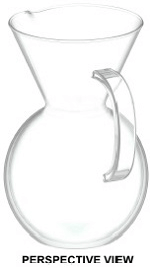A recent decision of the Australian Designs Office in PI-Design AG [2018] ADO 2 highlights how the degree of distinctiveness required for a valid design can vary significantly depending on the state of the prior art.
Upon examination, PI-Design’s registration for a coffee maker shown on the left was initially held to be invalid in light of its own earlier registration shown on the right.


PI-Design accepted that there were many similarities between the two designs but placed particular emphasis on the ‘double-walled feature’ of the registration as a distinguishing element. The hearing officer commenced his analysis by noting the importance of appreciating the state of development of the prior art base. Not only does this aid in assessing the freedom of the designer to innovate, it also directly informs the degree by which differences in visual features will influence overall impression of the design. It was noted that “as a general proposition, when the prior art base is well developed smaller differences will generally be seen by the informed user as conferring a distinct overall impression”.
For the registration in issue, the prior art base was relatively crowded and there were certain functional considerations which limited the designer’s freedom to innovate. In this context, smaller details could provide a basis for distinctiveness. The hearing office considered evidence showing that the visual differences in the designs, specifically the ‘double-walled feature’ would be emphasised in use and would also communicate a functional difference to the informed used. As a result, the registration was held to be sufficiently distinctive.
The decision illustrates how even small variations in appearance can support a valid design registration in a crowded field.

